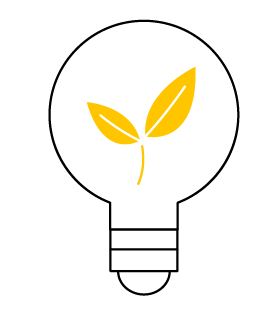The Reuters news staff had no role in the production of this content. It was created by Reuters Plus, the brand marketing studio of Reuters.

Produced by Reuters Plus for


An ASEAN Narrative to Transition
Everyone understands the necessity for a just transition but there is no one solution that fits all. Transition needs to be seen through a local lens.

In such a diverse region such as ASEAN, where rich donor countries sit side by side with major developing economies, the necessity for a more tailored approach to a just transition lies bare.
Hard-to-abate industries such as oil and gas, power, mining, agriculture and heavy industry are the lifeline of the ASEAN economy — contributing between 30% to 40% of GDP and employing half of ASEAN’s working population, according to estimated data in the ASEAN Statistical Yearbook 2023.
With ASEAN’s energy demands set to grow by 60% by 2040, it is imperative that any transition needs to ensure that the shift towards a future of sustainable energy is not only environmentally responsible but also socially and economically inclusive.
“Transition is by nature a dynamic and ever-evolving process. It is unique to each country’s socio-economic and domestic context,” says Shahril Azuar Jimin, Maybank’s Group Chief Sustainability Officer. “ASEAN countries are all at different paces of development, and it would be unfair to expect all countries to transition overnight.”











With this in mind, Maybank became the first Malaysian bank to launch a Transition Finance Framework (TFF) in December 2023 at the COP28 in Dubai to provide clarity on the subject.
“We came up with the framework to send out a clear signal that the bank wants to help,” says Ranita Abdullah, Head of ESG Strategy & Solutions, Group Global Banking at Maybank.
Credibility and Pragmatism
Making the bold step to draft a TFF inevitably came with its challenges. It was critical to balance the bank’s commitment of supporting sustainable and economic growth across the region while aligning with the various international guidelines on transition finance already in play.
“We needed to balance credibility and pragmatism,” says Maybank’s Shahril.
“Transition finance is in a bit of a conundrum,” adds Ranita. “Everyone knows how critical transition is. However, the fear of greenwashing and financing companies that are decarbonising their brown assets, can sometimes hold investors back.”
In order to guide clients operating in hard-to-abate sectors to transition in a credible yet meaningful manner, Maybank’s TFF is built to allow for several approaches in recognising transition finance – i.e. a Principles-Based, Eligibility Activity, and Net Zero Strategies & Essential Criteria approaches.
Through the TFF, “we expect to foster stronger relationships with clients by providing them with the necessary financial tools and expertise to transition effectively,” says Shahril. “This also contributes to broader national and regional decarbonisation goals.”
The bank acted as a Sustainability Framework Adviser for Malaysia’s largest electric utility company Tenaga Nasional Berhad, making it the first electricity utility company in ASEAN to establish a TFF.
Complex realities
There remain certain detractors of transition finance who are adamant that coal-financing should be denounced altogether — the realities, however, are much more complex, particularly in ASEAN.
“The region’s reliance on fossil fuels is deeply entrenched,” says Maybank’s Shahril. “And it would be irresponsible of us to completely stop the financing of existing coal assets without a transitional plan in place.”
“A regression in development, which could undermine the needs of communities, will have damaging consequences for developing nations,” continues Shahril.
Disclaimer: The Reuters news staff had no role in the production of this content. It was created by Reuters Plus, the brand marketing studio of Reuters. To work with Reuters Plus, contact us here.
Find out more on Maybank’s Sustainability Journey and Transition Finance Framework here




Valerie Ng, Maybank Investment Banking Group’s Head of Sustainable Finance

We understand our role being in a position to drive behaviour and to support our clients in their decarbonisation needs.






60%
ASEAN's energy demands are set to grow by
by 2040



Shahril Azuar Jimin, Maybank’s Group Chief Sustainability Officer

Through the TFF, we expect to foster stronger relationships with clients by providing them with the necessary financial tools and expertise to transition effectively.


Maybank is also playing a leading role in curating capacity building programmes. Through a collaboration with the Glasgow Financial Alliance for Net Zero (Gfanz), a transition planning clinic has been rolled out to the wider Malaysian financial industry.
“The theme transition comes up in every conversation — with our clients, all the way to the board level,” says Valerie Ng, Maybank Investment Banking Group’s Head of Sustainable Finance. “We understand our role being in a position to drive behaviour and to support our clients in their decarbonisation needs.”
Ranita Abdullah, Head of ESG Strategy & Solutions, Group Global Banking at Maybank

...the fear of greenwashing and financing companies that are decarbonising their brown assets, can sometimes hold investors back.


Encouragingly, Maybank’s Shahril says that a few transition deals managing the early retirement of coal-fired power plants are already in the works.
“Once a few more transition finance deals are complete, we can expect a snowball effect built on increased investor confidence and capital readiness,” he adds.
Undoubtedly transition, and the ways to finance it, is a thorny subject that can trigger impassioned views. Yet the finger-pointing should not detract from the necessity of our shared net zero goals. Any bold efforts to define, advise and aid transition should be welcomed by all.
The difficulty to define transition in absolute terms has meant that transition finance as a whole has not flourished as much as we need it to. Aside from some transactions in China, Hong Kong and Japan, there are no recognised transition finance deals per se in the ASEAN region yet.
The Reuters news staff had no role in the production of this content. It was created by Reuters Plus, the brand marketing studio of Reuters.

Produced by Reuters Plus for









Disclaimer: The Reuters news staff had no role in the production of this content. It was created by Reuters Plus, the brand marketing studio of Reuters. To work with Reuters Plus, contact us here.